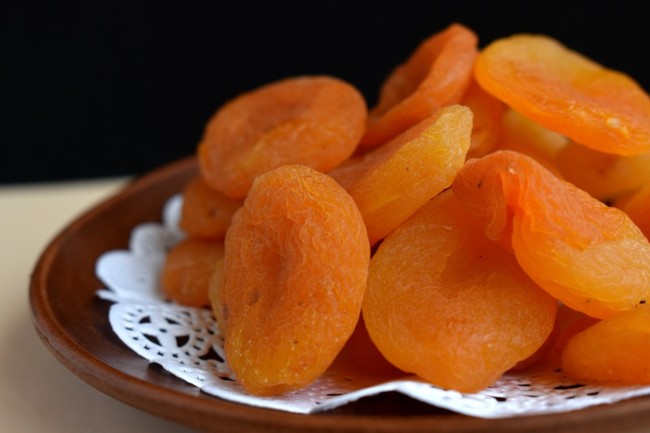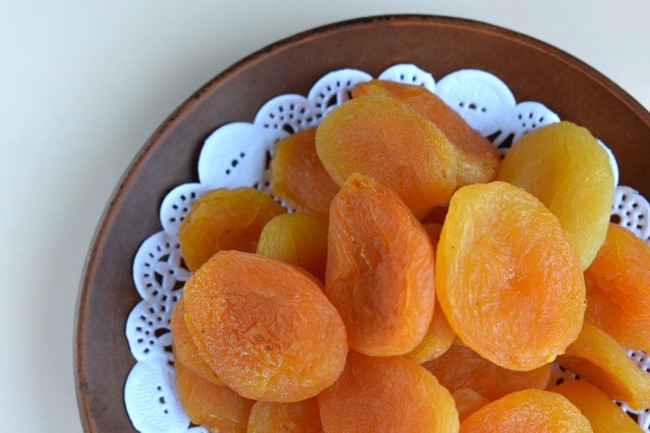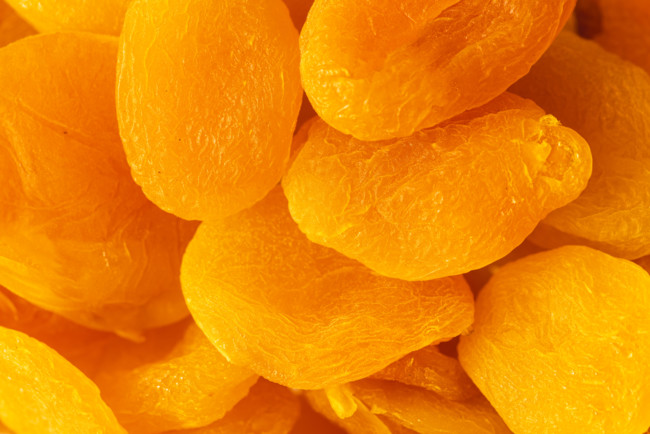Dried apricots are one of the healthiest dried fruits. It invigorates, removes excess fluid, and helps burn fat in the body. This dried fruit can prevent and relieve anemia, heart disease, and improve vision. Therefore, dried apricots are essential in our diet.
Dried apricots are best eaten not with the main meal but as a snack. In this case, trace elements are better absorbed. Before eating dried apricots, you should hold them for ten minutes in warm water to wash off dust and sticky debris from them.
The health benefits of dried apricots
Dried apricots are not only delicious but also healthy dried fruit. According to nutritionists, dried apricots help treat cardiovascular diseases, anemia, and diseases of the gastrointestinal tract, it is also good for vision.
Read also: Top 5 Healthier Alternatives To Flour When Losing Weight
In dried apricots, potassium salts prevail over sodium salts, so it is considered a dietary product. It contains a lot of magnesium, so it is included in people suffering from hypertension and anemia. This product also contains many plant fibers that help cleanse the intestines.

Dried apricots are rich in vitamin A, without which the human body’s normal functioning is impossible. It has a mild diuretic property; most of all, an infusion or decoction from it, it is prescribed for kidney and heart disease.
Dried apricots are useful for diabetics; they are recommended for hypovitaminosis, thyroid diseases, etc. It is one of the components of many homeopathic medicines.
Dried apricots composition
It is known that dried apricots contain few vitamins. Still, at the same time, they contain many minerals (potassium, phosphorus, magnesium, calcium, iron), of which there are even more in dried apricots than in fresh apricots. It also contains many pectins, vitamin B5, organic acids, removing heavy elements and radionuclides from the body. Dried apricots contain a lot of sucrose, fructose, and glucose (more than 80% in total).
Sometimes dried apricots are prescribed for diabetes mellitus. The only thing is that people with diabetes are advised not to abuse dried apricots of Uzbek and Tajik varieties (the so-called whispered); they contain up to 80% sugar.
How to choose dried apricots
Learn to choose the right dried apricots; they should be natural in color and not too transparent. Good dried apricots are clean and large, moderately tough and elastic.

If dried apricots are too bright, attractive orange color, this may be due to the use of chemicals that improve the product’s appearance. It is better to buy matte dried apricots with a light gray tint – this is what the fruit becomes during the natural drying process.
Fasting days on dried apricots
Nutritionists are not without reason advised to do “fasting days” and eat only dried fruits. Or at least consume little dried apricot before meals, add them to morning cereals. Dried apricots are quite nutritious, but all the calories in them are natural, light, and healthy, and the sugar in them is glucose and fructose (no cholesterol, no fat).
During the drying process, fruits become poorer in vitamin C (ascorbic acid), but they contain in a concentrated form various trace elements (iron, potassium, carotene, calcium, phosphorus) and vitamin B5.
Dried apricots are very useful for health; they allow you to remove cholesterol. Carotene (vitamin A), which is abundant in it, is also involved in forming sex hormones and is good for vision.

Decoctions and thick infusions of dried apricots are often used to prevent heart disease, renal disease, as they have a diuretic effect. Dried apricots are prescribed for children with hypovitaminosis. Like any other dried fruit, dried apricots should not be greatly carried away. The amount of fiber in an apricot increase as it dries from 2g per 100g of a product to 18 g. This can cause diarrhea.
Also read: Chicken Fillet Rolls With Prunes And Dried Apricots
Dried apricots are often part of the so-called. “magnesium” diets prescribed for anemia and hypertensive heart disease. It has coarse fiber and therefore is easily perceived in the gastrointestinal tract (especially if dried apricots are boiled or soaked), does not greatly excite intestinal peristalsis. Dried apricots are not rich in vitamins; even in small doses, they help maintain the balance of nutrients in the body, essential in winter and spring.
Adapted and translated by Wiki Avenue Staff
Sources: Today Lifestyle






